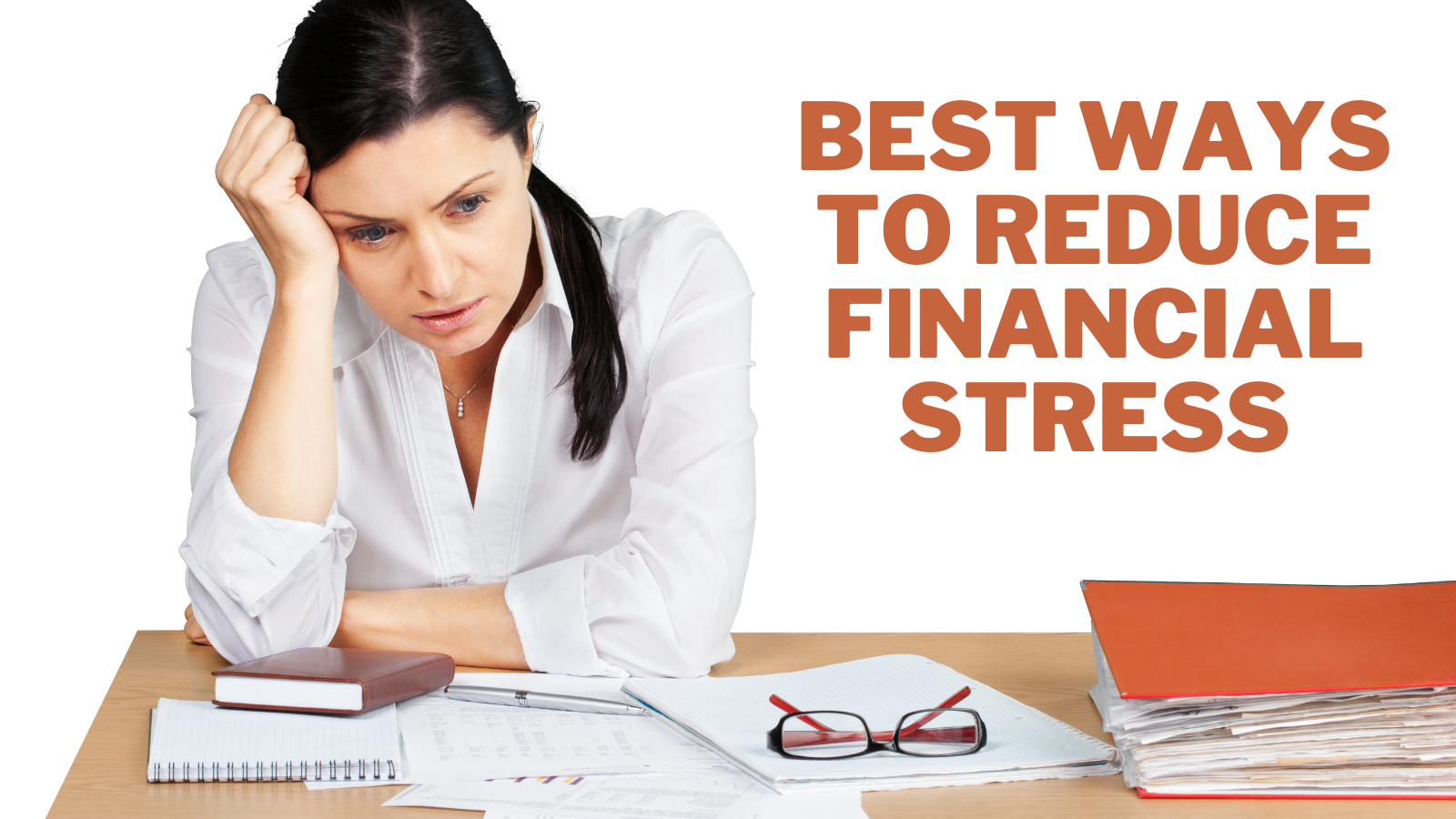Best Ways To Reduce Financial Stress
Best Ways To Reduce Financial Stress
Money is a constant source of stress, and it's not hard to see why. You can reduce your stress levels and start feeling more confident about your financial future.
This blog post will explore effective ways to reduce financial stress and achieve greater peace of mind.

What Is Financial Stress?
Financial stress is a type of stress that arises from concerns about money, including worries about debt, bills, savings, and investments.
Financial stress can affect people of all ages and income levels, leading to various negative health outcomes, including anxiety, depression, high blood pressure, and sleep disorders.
It can also impact personal relationships and work performance, leading to a decrease in productivity and satisfaction.
A lack of financial literacy is one of the most significant factors contributing to financial stress.
Many people struggle to manage their finances effectively because they don't know how to create a budget, save money, or invest wisely.
Additionally, unexpected life events, such as job loss, illness, or divorce, can lead to financial strain, making it even more challenging to manage money and avoid stress.
Financial stress can also affect your decision-making abilities. When you are under financial pressure, you may make impulsive or irrational decisions that can lead to even more financial problems.
For example, you may take on high-interest loans or invest in risky ventures without fully understanding the risks involved.
The good news is that financial stress is manageable, and there are plenty of ways to reduce its impact on your life.
By improving your financial literacy, reducing debt, and increasing your savings, you can significantly reduce financial stress and improve your overall quality of life.

Ways To Reduce Financial Stress
Financial stress can affect mental and physical health. It can cause anxiety, depression, and even physical illness. Fortunately, there are ways to reduce financial stress and take control of your finances.
1. Create A Budget
A budget is an effective way to manage your finances and alleviate financial stress. It involves tracking your expenses and income to ensure you live within your means.
To create a budget, start by listing your monthly expenses, including bills, groceries, entertainment, and any other costs you have.
Be sure to include everything, no matter how small the payment may seem. This will give you an accurate picture of your spending habits.
Next, subtract your expenses from your income to see how much you have left over each month. This will help you identify areas where you can reduce spending, such as dining out less frequently or reducing your entertainment expenses.
It's important to be realistic when creating a budget. Set goals that are manageable and easy to achieve. Start by adjusting your spending habits and gradually work towards your financial goals.
Remember to review your budget regularly and make adjustments as needed. Your expenses may change over time, and you may need to adjust your budget accordingly.

2. Pay Off Debt
Debt can be a significant source of financial stress, and a plan to pay it off can be crucial in achieving financial stability.
The first step in paying off your debts is to inventory all your debts, including the amount owed, the interest rate, and the minimum monthly payment.
Once you have this information, you can create a plan to pay off your debts, starting with the ones with the highest interest rates.
You can use several strategies to pay off debt, including the snowball and avalanche methods.
The snowball method involves paying off the smallest debt first and then using the money you were paying towards that debt to pay off the next smallest debt, and so on.
On the other hand, the avalanche method involves paying off the debt with the highest interest rate first and then moving on to the next highest interest rate debt.
Once you have paid off your debts, you'll have more money for savings or other financial goals. Staying disciplined and living within your means is crucial to avoid debt.
Creating an emergency fund and setting financial goals can help you stay motivated and on track toward achieving financial freedom.
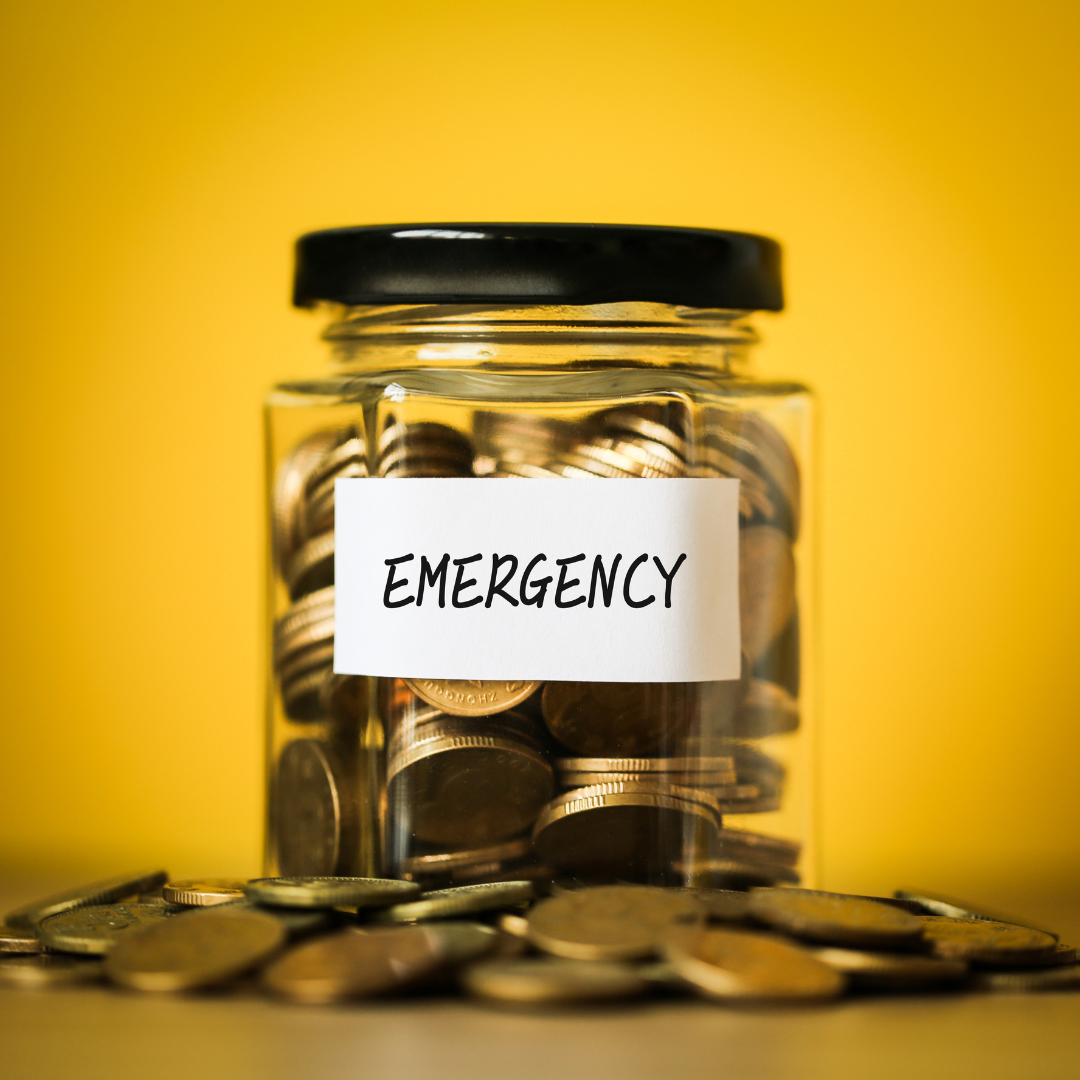
3. Save For Emergencies
An emergency fund is crucial to any sound financial plan. It funds unexpected events such as job loss, medical expenses, or a major home or car repair.
An emergency fund can help alleviate financial stress and give you peace of mind, knowing you have a financial safety net in an emergency.
Generally, you should have three to six months' worth of expenses set aside in your emergency fund.
To calculate your costs, add up your monthly bills, including rent or mortgage, utilities, groceries, transportation, and other necessary expenses.
Multiply that number by three or six, depending on how conservative you want to be with your savings.
Building an emergency fund can take time, but starting small and consistently is essential. Start by setting aside a small amount each month, such as $50 or $100, and gradually increase the amount as you can afford to.
Find ways to reduce non-essential expenses to redirect more money toward your emergency fund.
Keeping your emergency fund separate from your regular checking or savings account is also important. Consider opening an additional savings or money market account that is easily accessible in an emergency.
Once you have built up your emergency fund, revisit it regularly to ensure it's still sufficient for your needs.
As your life circumstances change, such as getting married or having children, you may need to adjust your emergency fund savings goals accordingly.
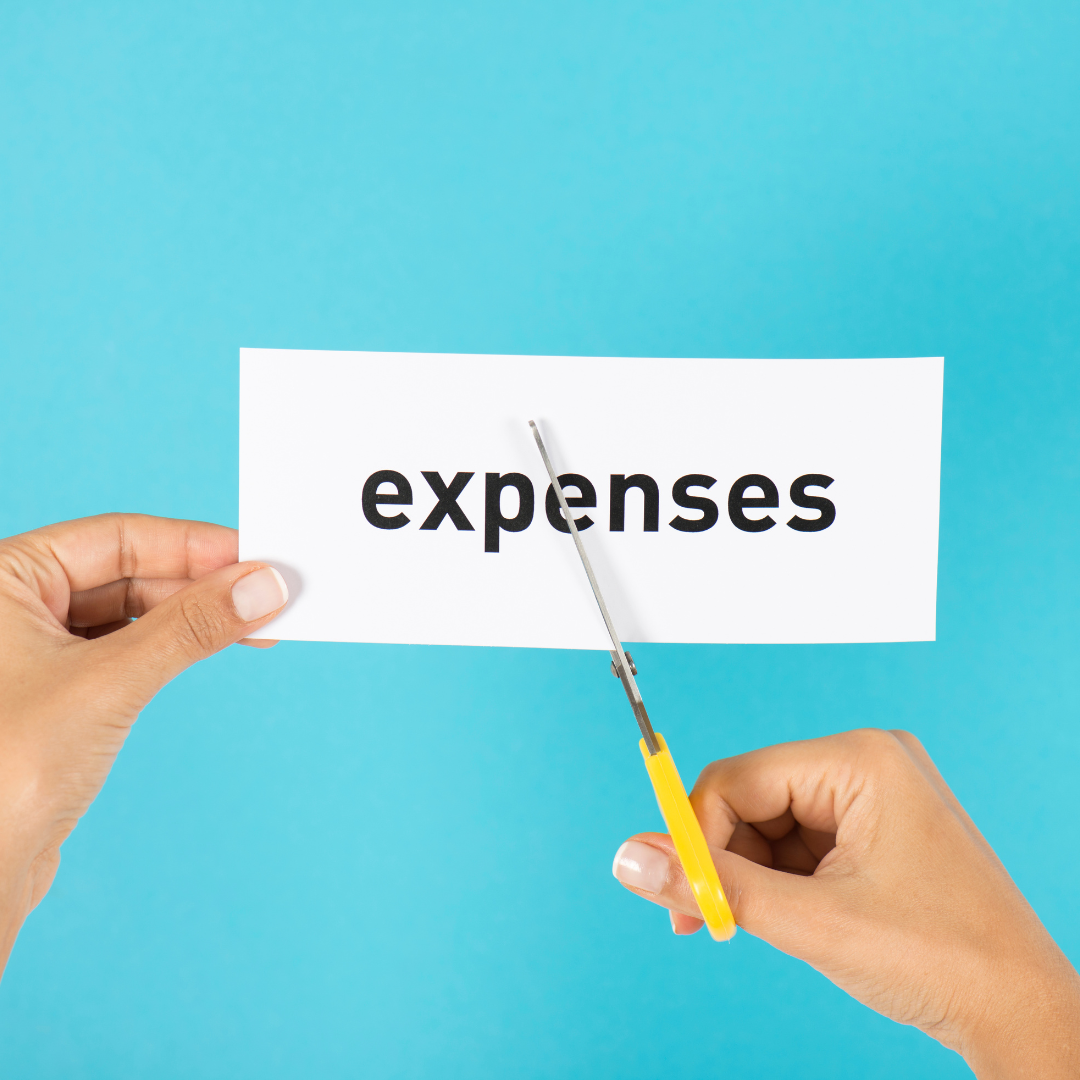
4. Reduce Expenses
Reducing expenses is an effective strategy for reducing financial stress. By evaluating your spending habits and identifying areas where you can cut back, you can take control of your finances and feel more financially secure.
One way to reduce expenses is by cutting back on discretionary spending, such as dining out or entertainment.
You can save money without sacrificing fun by cooking at home more often and finding free or low-cost activities.
Another area to evaluate is your fixed expenses, such as rent or mortgage payments, utilities, and transportation costs.
Look for savings opportunities, such as downsizing to a smaller home or car or finding ways to reduce your energy consumption.

5. Increase Income
Increasing your income is a powerful way to improve your financial situation and reduce stress. There are many ways to increase your revenue, depending on your skills, interests, and resources.
One option is to take on a side hustle or part-time job. This could involve selling goods or services online, freelancing, or working part-time in a field that interests you.
You can supplement your current salary and work towards your financial goals by earning extra income.
Another option is to start a small business. This could involve selling a product or service, providing consulting or coaching services, or starting an online business.
While creating a business can be challenging, it can also be rewarding and lucrative if done properly.
If you are looking for a more significant increase in income, consider looking for a higher-paying job.
This may involve upgrading your skills or education, networking with industry professionals, or exploring job opportunities in high-growth industries.
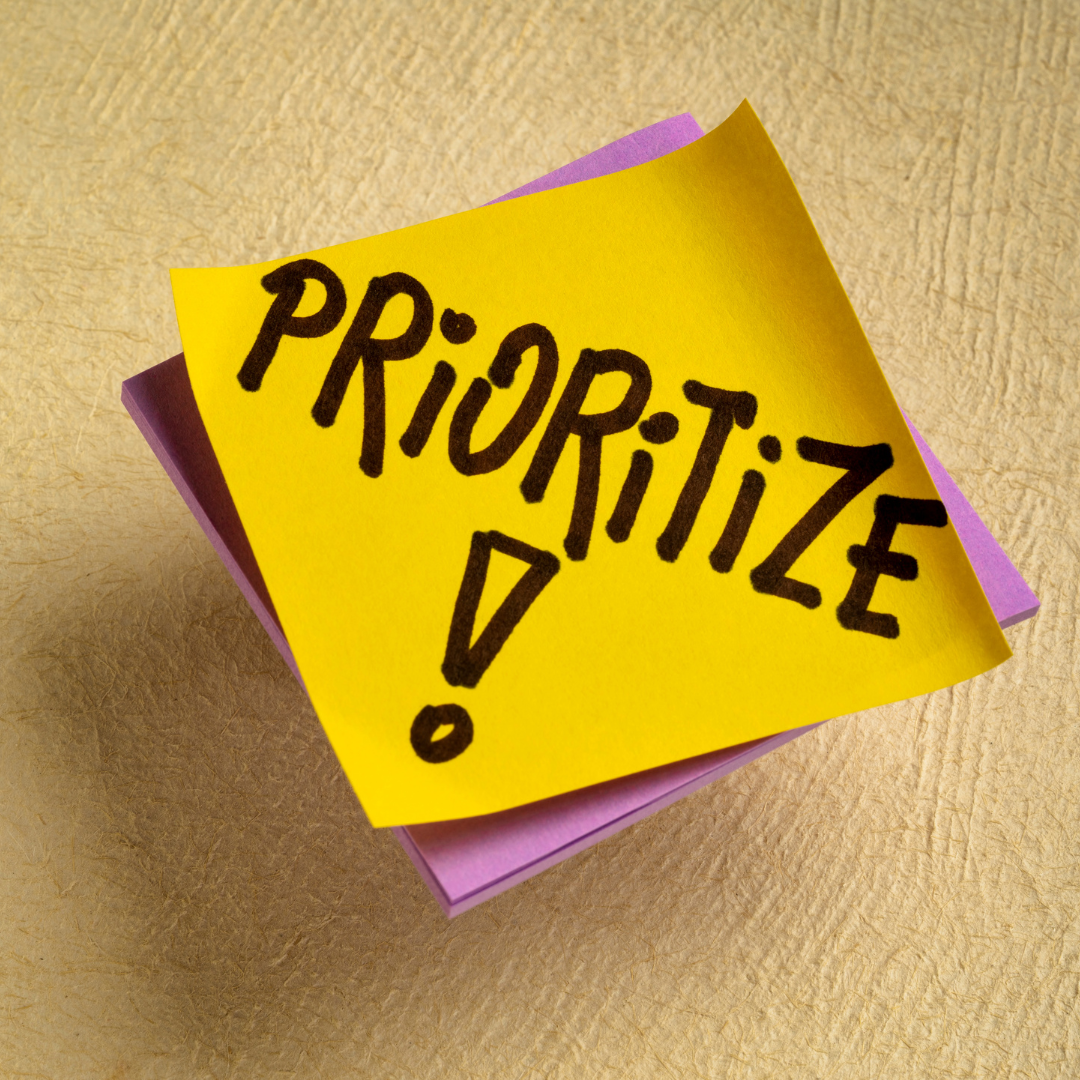
6. Prioritize Your Spending
Prioritizing your spending is crucial to achieving financial stability and reducing stress. By focusing on your needs and financial goals, you can ensure that your money works for you and that you are not wasting it on unnecessary expenses.
The first step in prioritizing your spending is to identify your financial goals. This might include retirement savings, paying off debt, or building an emergency fund. Once you have a clear idea of your goals, you can allocate your money toward them.
It's also important to distinguish between needs and wants. While spending money on things that make us happy at the moment is tempting, it's important to prioritize our needs first. This might include expenses like rent, utilities, groceries, and transportation.
Once you have handled your needs, you can allocate money toward your wants. This might include discretionary spending like dining out or entertainment. However, ensuring your desires stay within your financial goals is important.

7. Use Technology To Your Advantage
Using technology to your advantage is a great way to improve your financial situation and reduce stress.
There are many financial tools and apps available that can help you manage your money more effectively and make better financial decisions.
One tool that can be particularly helpful is a budgeting app. By tracking your expenses and income in real time, you can better understand where your money is going and identify areas where you can cut back.
Many budgeting apps also provide insights and recommendations for improving your finances.
Another useful tool is a savings app. These apps allow you to set savings goals and automatically save money towards them.
By making saving a habit and taking advantage of tools like automatic round-ups or recurring transfers, you can build up your savings without thinking about it.

8. Stay Positive
Staying positive is crucial when it comes to managing your finances. Financial stress can affect anyone, and a healthy perspective is essential.
You need to remember that everyone faces challenges, and it's not something to be ashamed of.
Focus on your progress toward your financial goals, no matter how small. Celebrating your successes is important, no matter how insignificant.
A positive mindset can help you stay motivated, even during challenging times. It can help you reduce stress and prevent anxiety, sometimes leading to irrational financial decisions.
When you're optimistic, you can approach your financial situation with a clear and level head, making it easier to develop practical solutions.

9. Avoid Comparison
It's important to avoid comparing your financial situation to others, as everyone's financial situation is unique.
What works for one person may not work for you, and vice versa. Sharing your financial situation with others can lead to feelings of inadequacy, envy, and depression. It can also lead to making irrational financial decisions and overspending.
Instead, focus on your own financial goals and progress. Identifying your financial priorities, setting achievable goals, and creating a realistic budget that works for you are essential.
By focusing on your economic advancement, you can stay motivated, track your success, and make adjustments along the way.
It's also important to remember that people often present their best selves on social media and in public.
They may hide their financial struggles, and their apparent wealth may not be what it seems. Therefore, it's important not to compare your financial situation to others, as it does not accurately reflect their reality.

10. Learn To Say No
Learning to say no can be challenging, especially regarding invitations or requests that can strain your finances.
However, saying no is essential when staying within your budget and reducing financial stress.
It's important to be honest with friends and family about your financial situation and explain that you cannot afford to participate in certain activities.
It's important to communicate your financial boundaries. You can offer alternative ways to spend time together.
For example, suggest a potluck dinner or picnic in the park instead of going out for dinner or drinks. Alternatively, offer free or low-cost activities such as hiking or bike rides.
Remember that true friends and family members will understand and respect your financial boundaries.
If someone continues to pressure you to spend more than you can afford, it may be a sign that they're not respecting your economic boundaries or friendship.

11. Plan For The Future
Planning for the future is essential to managing your finances and reducing financial stress.
Creating a retirement plan, setting up a college fund for your children, or planning for unexpected expenses are all important steps in securing your financial future.
It helps you save for future costs and ensures you're financially secure after retirement. A financial advisor can assist you in developing a strategy that fits your objectives and financial position.
This could include investing in stocks or bonds, opening a 401(k) or IRA, or contributing to a pension plan.
Setting up a college fund for your children is another important step in planning for the future. College is expensive, and early savings can help you avoid financial stress later. You can set up a 529 plan or a Coverdell ESA to save for your children's education expenses.

12. Review Your Finances Regularly
Regularly reviewing your finances is important to staying on track with your financial goals and reducing stress.
By reviewing your budget, tracking your expenses, and monitoring your savings and investment accounts, you can identify areas where you may need to adjust and take action to improve your financial situation.
One way to review your finances is to create a monthly or quarterly budget and track your expenses against it.
This can help you identify areas where you may be overspending or can cut back to save more money. You can use a spreadsheet, a budgeting app, or even pen and paper to track your expenses.
It's also important to regularly check in on your savings and investment accounts to make sure you are on track with your long-term goals.
This can include monitoring your retirement accounts, such as your 401(k) or IRA, and adjusting your investment strategy as needed.

13. Understand Your Emotions
Understanding how your emotions impact your financial decisions is crucial for making informed choices and avoiding impulsive behaviours that can lead to financial stress.
Feelings like fear, greed, and anxiety can cloud our judgment and lead us to make decisions not in our best interests in the long run.
For example, if you're feeling anxious about your financial situation, you might be more likely to make rash decisions, such as selling off investments or taking on more debt than you can handle.
On the other hand, if you're feeling overly confident or greedy, you might be more likely to take on unnecessary risks or make speculative investments that could lead to losses.
Recognizing and acknowledging your feelings is important to avoid making decisions based solely on emotions.
Take the time to reflect on why you're feeling a certain way, and consider how those emotions might influence your financial decisions.
If you're making impulsive decisions based on your feelings, try taking a step back and giving yourself time to cool off before making any major financial moves.

14. Involve Your Family
Involving your family in your financial planning can be beneficial for several reasons. First and foremost, it can help to reduce stress and anxiety around money matters.
You can avoid feeling overwhelmed and alone by sharing financial decision-making responsibilities.
Involving your family in financial planning can create a sense of unity and shared purpose. By working together towards common goals, you can strengthen your relationships and build a sense of teamwork.
To involve your family in financial planning, consider holding regular family meetings to discuss your financial situation and goals.
Encourage open and honest communication, and make sure everyone has a chance to voice their opinions and concerns.
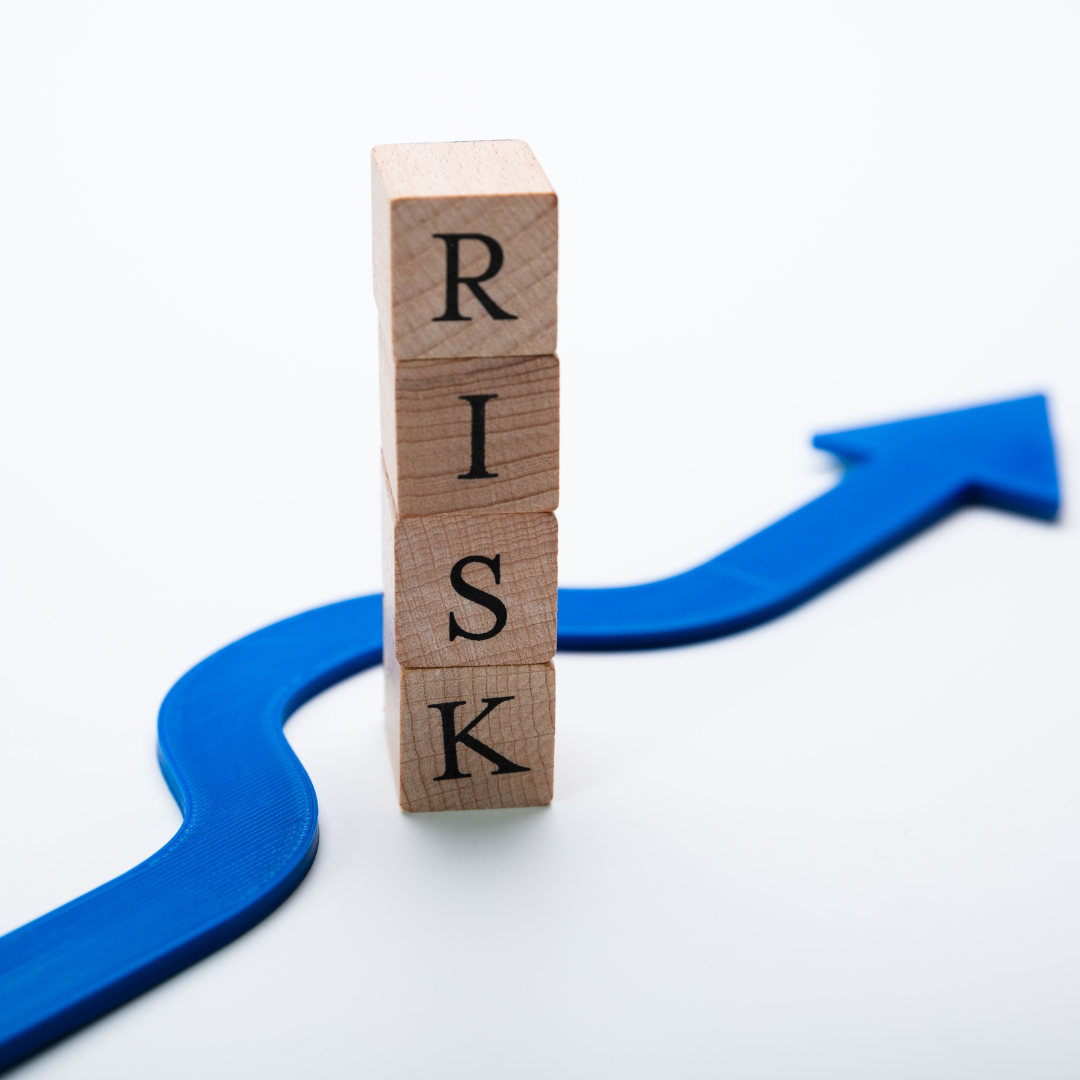
15. Avoid High-Risk Investments
Investing can be an excellent way to grow wealth and secure your financial future. However, it's crucial to avoid high-risk investments that can lead to financial stress if they don't work out.
Investing in things you understand and align with your risk tolerance and financial goals is essential.
High-risk investments, such as penny stocks, futures contracts, and options, can offer the potential for high returns. However, they can also be unpredictable and volatile, leading to significant losses.
Researching and understanding the risks associated with these types of investments is crucial before putting your money on the line.
It's also important to avoid investments that seem too good to be true, such as get-rich-quick or pyramid schemes.
These investments often promise high returns with little to no risk, but they're usually fraudulent and can lead to significant financial losses.
Instead, it's best to stick to investments that align with your risk tolerance and financial goals. This could include investing in stocks or mutual funds, contributing to a retirement plan, or investing in real estate. These investments are generally less risky and offer a more stable return on investment.

16. Prioritize Your Mental And Physical Health
Managing your mental and physical health is crucial to leading a fulfilling life. Financial stress can significantly impact your psychological and physical well-being, leading to long-term health issues.
Therefore, prioritizing your mental and physical health should be a top priority, especially during difficult financial times.
One of the essential aspects of taking care of your psychological and physical health is getting enough sleep.
Sleep deprivation can significantly affect mood, cognitive abilities, and overall health. It is essential to ensure you get enough sleep every night to feel refreshed and energized.
Regular exercise is another crucial aspect of maintaining your mental and physical health. Exercise not only helps to reduce stress and anxiety but also improves your overall mood and cognitive abilities.
It also boosts your energy levels, reduces the risk of chronic diseases, and helps you maintain a healthy weight.

Conclusion
Financial stress can significantly burden individuals, negatively impacting mental and physical health, relationships, and overall quality of life. However, there are ways to reduce financial stress and regain control of your finances.
Some of the most effective strategies include creating and sticking to a budget, reducing unnecessary expenses, building an emergency fund, paying debt, and seeking professional financial advice.
Additionally, it's important to remember that financial stress is a common experience and that seeking support from friends, family, or a mental health professional can help manage the emotional toll of economic challenges.
By taking proactive steps to address financial stress, individuals can improve their overall well-being and feel more empowered financially.
I trust you enjoyed this article about the Best Ways To Reduce Financial Stress. Please stay tuned for more blog posts to come shortly.
JeannetteZ
>>>Please click here to read my all-inclusive article about Lessons That Will Teach You All About Stress<<<
>>>Are you interested in Natural Healing And Stress Relief through Herbs? Please click here for my #1 Recommendation<<<
Your Opinion Is Important To Me
Thoughts? Ideas? Questions? I would love to hear from you. Please leave me your questions, experiences, and remarks about this article on the Best Ways To Reduce Financial Stress in the comments section below. You can also reach me by email at Jeannette@Close-To-Nature.org.
>>>Please click here to go to my other website to find out more about how to make money from home<<<
Disclosure
This post may contain affiliate links. I earn from qualifying purchases as an Amazon Associate and other affiliate programs. Please read my full affiliate disclosure.
You might also enjoy these blog posts:
12 Best Tips To Reduce Stress While Studying
6 Best Tips To Reduce Stress In Men Over 50

